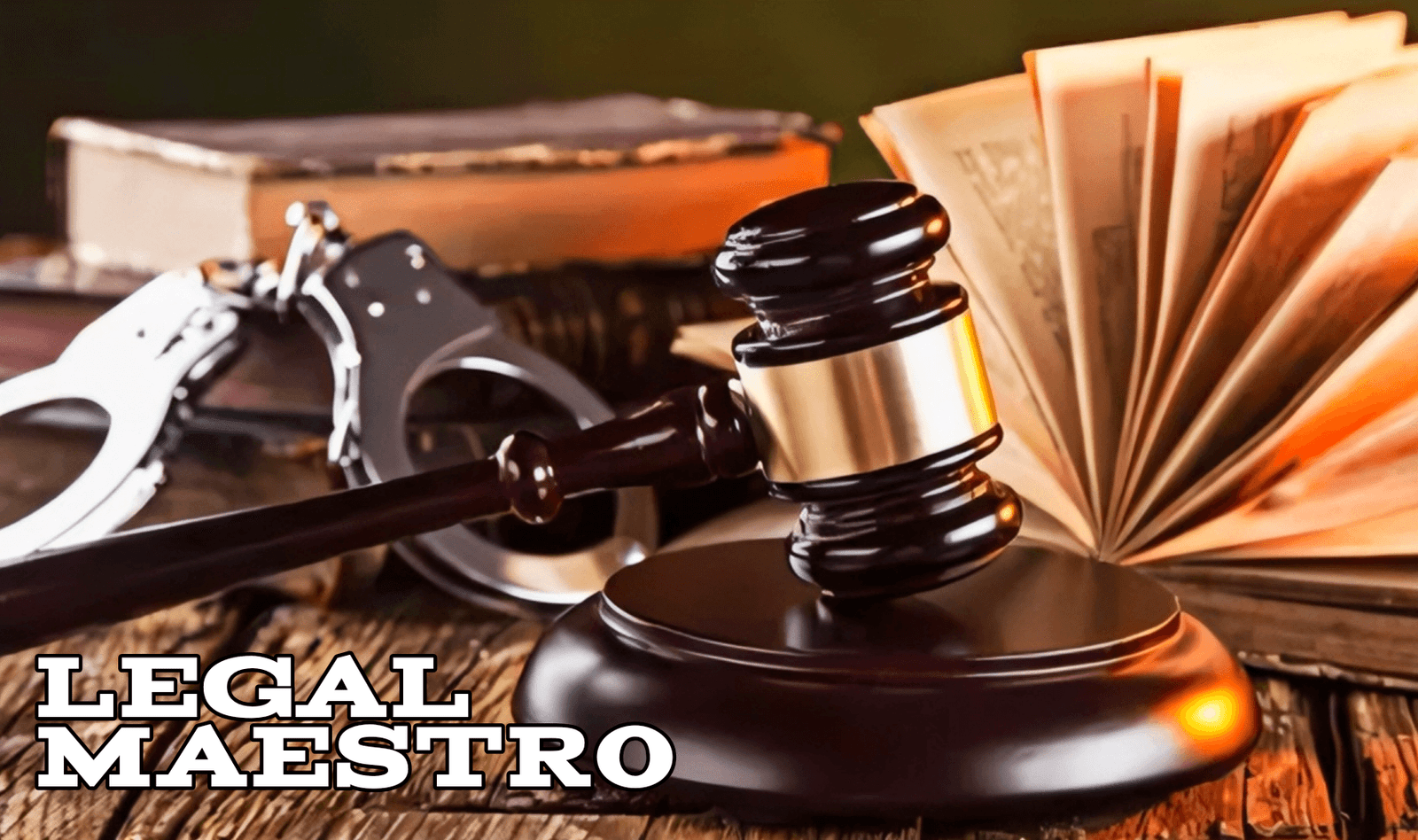
Since the Waqf Act of 1995, the Waqf (Amendment) Act, 2025, is one of the most significant changes to waqf legislation that has occurred since the original Waqf Act. Community-elected Muslim authorities have traditionally been responsible for the management of waqf properties.
Waqf properties include places of worship such as mosques, graveyards, schools, and charitable institutions that are dedicated to religious or public purposes.
An heated debate has been sparked regarding the appropriate balance between administrative reform and religious freedom as a result of the revisions that were passed in 2025. These amendments altered the conditions for membership and recognition of these endowments.
For any queries or to publish an article or post or advertisement on our platform, do call at +91 6377460764 or email us at contact@legalmaestros.com.
For More Updates & Regular Notes Join Our Whats App Group (https://chat.whatsapp.com/DkucckgAEJbCtXwXr2yIt0) and Telegram Group ( https://t.me/legalmaestroeducators )
Changes that are Significant in the Waqf Act 2025
The Act of 2025 brings about three significant modifications. To begin, it allows for the nomination of a restricted number of non-Muslim individuals to serve on the Central Waqf Council as well as the State Waqf Boards during the period of time.
The second benefit is that it eliminates the concept of “waqf by user,” which was a system that permitted properties to be considered waqf on the basis of their long-standing usage for charity or religious purposes without the need for formal registration.
For any queries or to publish an article or post or advertisement on our platform, do call at +91 6377460764 or email us at contact@legalmaestros.com.
Third, it gives district collectors the authority to evaluate whether or not contested properties belong to waqf estates and to denotify assets that had been proclaimed waqf as a result of court orders or traditional use.
Controversy and Concerns Regarding Appointments Made to Non-Muslims
The government argues that the inclusion of non-Muslim individuals on waqf management boards is legitimate since it is a way to improve openness, guarantee the representation of minority groups, and prevent mismanagement.
Nevertheless, many who are opposed to it consider it to be an infringement on the community’s freedom to handle its own affairs.
For any queries or to publish an article or post or advertisement on our platform, do call at +91 6377460764 or email us at contact@legalmaestros.com.
They contend that allowing individuals who do not share the Islamic ethos of waqf institutions could be detrimental to trust, could dilute the cultural identity of waqf assets, and could expose these holdings to judgments that do not reflect the long-standing traditions and requirements of the Muslim community.
Waqf removal through the provision of the user
Any property that was used constantly and solely for religious or charitable operations was eligible to automatically obtain waqf status under the previous rule, even if there was no formal deed in place.
This provision acknowledged the historical fact that a great number of institutions had been established over the course of time. With the change that takes effect in 2025, this idea will be replaced by a stringent need for formal registration.
For any queries or to publish an article or post or advertisement on our platform, do call at +91 6377460764 or email us at contact@legalmaestros.com.
The opposition is concerned that hundreds of sites, some of which are hundreds of years old, could lose their status as waqfs overnight if the requisite paperwork is missing. This would put the sites at risk of being repurposed, sold, or redeveloped by state agencies or private interests.
District collectors and property denotification authorities have the authority to
The allocation of authority to district collectors to identify government lands that may qualify as waqf and to denotify properties that were previously declared waqf by courts or through user is perhaps the most far-reaching move that has been made.
Those who are in favor of this proposition claim that it will assist in resolving title disputes, bringing uniformity to records, and rectifying historical irregularities.
For any queries or to publish an article or post or advertisement on our platform, do call at +91 6377460764 or email us at contact@legalmaestros.com.
Opponents consider it to be a perilous expansion of presidential power that has the potential to be abused for political purposes, which would result in the arbitrary removal of waqf protections and the loss of communal assets in the absence of adequate judicial scrutiny.
The Interim Relief Granted by the Supreme Court: Specifics and Implications
Midway through the month of May in the year 2025, a panel of the Supreme Court of India, which included the Chief Justice of India and a senior judge, reached an agreement to hear petitions that challenged the revisions to the Waqf Act.
A record of the government’s guarantee that no non-Muslim appointments would be made to waqf boards and councils until the next scheduled hearing on May 20 was established by the Court.
For any queries or to publish an article or post or advertisement on our platform, do call at +91 6377460764 or email us at contact@legalmaestros.com.
This determination was taken in recognition of the possibility of alterations that could not be reversed.
In addition, it was decided that during the interim period, no waqf properties, regardless of whether they were formed by deed or by user, would be denotified or have their nature altered. As a result of this action, the Court has preserved the current state of affairs and barred any rapid execution of the clauses that are being contested.
guarantees provided by the government
For the purpose of obtaining the interim relief, the Union Ministry of Minority Affairs produced a lengthy affidavit in which it defended the provisions of the Act and agreed to refrain from exercising the new powers until the final decision was taken into consideration.
For any queries or to publish an article or post or advertisement on our platform, do call at +91 6377460764 or email us at contact@legalmaestros.com.
Officials highlighted that the modifications are intended to simplify administration, significantly cut down on corruption, and significantly increase the number of waqf assets that are properly recorded.
The argument that they presented was that formal registration and expanded representation would increase the accountability of the organization. On the other hand, they pledged to exercise moderation with regard to the most delicate modifications until the Supreme Court is able to properly assess the legitimacy of those modifications.
Instances of Community and Legal Responses
Strong reactions have been developed on both sides as a result of the debate about the Waqf Act. In response to the changes, Muslim community groups have staged demonstrations and published declarations, expressing their concern that the reforms pose a threat to their religious liberties and cultural legacy.
For any queries or to publish an article or post or advertisement on our platform, do call at +91 6377460764 or email us at contact@legalmaestros.com.
Legal scholars have provided their opinions by writing essays and participating in public webinars that explore constitutional problems including the rights of minorities, religious freedom, and the separation of powers.
In the meanwhile, a number of civil society organizations have expressed their support for the revisions, arguing that they are essential steps toward modernization. They have cited instances of alleged mismanagement and encroachment on waqf lands, which they feel the reforms that will take place in 2025 will assist in preventing.
The Path That Lies Ahead: Factors to Consider on May 20
When the Supreme Court meets again on May 20, it will decide whether to stay the disputed sections for the remainder of the legal proceedings and whether to extend, alter, or lift the interim relief.
For any queries or to publish an article or post or advertisement on our platform, do call at +91 6377460764 or email us at contact@legalmaestros.com.
Additionally, it will consider whether to grant a stay on the provisions that are being contested. The attorneys representing the petitioners will argue that the revisions infringe fundamental rights that are protected by the Constitution, specifically the freedom of religious denominations to independently conduct their own business.
The administration will argue that the judgment of the legislature should be respected and will underline the positive goals that the Act attempts to accomplish.
A decision made by the Supreme Court will provide direction regarding the allowed extent of governmental involvement in religious endowments, as well as the manner in which these amendments will be implemented and whether or not they will be implemented.
For any queries or to publish an article or post or advertisement on our platform, do call at +91 6377460764 or email us at contact@legalmaestros.com.
Through the Waqf (Amendment) Act, 2025, complicated issues pertaining to law, religion, and government have been brought to the forefront of public attention.
A number of legal challenges have been brought forth in response to its provisions regarding non-Muslim appointments, the withdrawal of waqf based on user status, and the denotification powers of district collectors.
The Supreme Court is currently examining these issues. The provision of interim relief with regard to non-Muslim appointments and property denotification guarantees that there will be no significant alterations made before to the subsequent hearing before the Court.
For any queries or to publish an article or post or advertisement on our platform, do call at +91 6377460764 or email us at contact@legalmaestros.com.
The nation is keeping a careful eye on the unfolding of the judicial dispute to see how India will strike a balance between the need for administrative reform and the safeguarding of religious autonomy and the rights of minority groups.


![JOB POST: Junior Associate at ASM Law Chambers, Jaipur [Freshers]](https://legalmaestros.com/wp-content/uploads/2025/11/Gemini_Generated_Image_8wrxer8wrxer8wrx-768x708.png)

